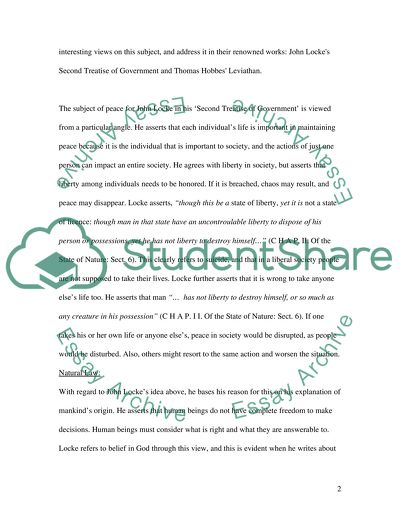Cite this document
(“Peace According to John Locke and Thomas Hobbes Essay”, n.d.)
Peace According to John Locke and Thomas Hobbes Essay. Retrieved from https://studentshare.org/miscellaneous/1504505-peace-according-to-john-locke-and-thomas-hobbes
Peace According to John Locke and Thomas Hobbes Essay. Retrieved from https://studentshare.org/miscellaneous/1504505-peace-according-to-john-locke-and-thomas-hobbes
(Peace According to John Locke and Thomas Hobbes Essay)
Peace According to John Locke and Thomas Hobbes Essay. https://studentshare.org/miscellaneous/1504505-peace-according-to-john-locke-and-thomas-hobbes.
Peace According to John Locke and Thomas Hobbes Essay. https://studentshare.org/miscellaneous/1504505-peace-according-to-john-locke-and-thomas-hobbes.
“Peace According to John Locke and Thomas Hobbes Essay”, n.d. https://studentshare.org/miscellaneous/1504505-peace-according-to-john-locke-and-thomas-hobbes.


